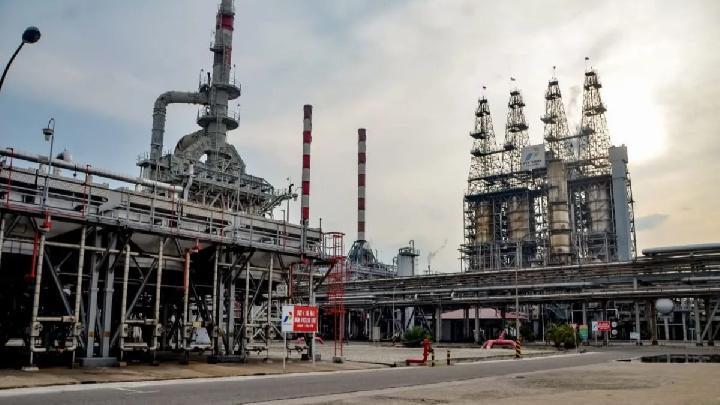TEMPO.CO, Jakarta - The conflict between Israel and Iran has escalated to an unprecedented scale. On Friday, June 13, 2025, Israel launched a massive aerial attack on Iran, targeting approximately 100 strategic locations, including nuclear facilities, ballistic missile factories, and positions of high-ranking military officials. 200 fighter jets were deployed in the attack, which resulted in the death of one of Iran's military leaders.
In retaliation, Iran launched over 100 explosive-laden drones in the early hours of Friday. According to the analysis of the Center for Strategic and International Studies (CSIS), Iran is expected to continue launching waves of attacks by combining ballistic and cruise missiles in the coming weeks. This situation is anticipated to persist shortly.
The tension between the two major powers in the Middle East affects not only the region's military stability but also threatens the fragile foundation of the global economy. Analysts warn that prolonged conflict can increase market uncertainty, drive global inflation, and create an energy supply crisis.
Surge in Crude Oil Prices
One of the most direct impacts of this conflict is the surge in the price of world crude oil. As reported by Al Jazeera, on June 13, 2025, at 16:00 New York time (20:00 GMT), the price of Brent crude oil, the international benchmark, rose by 5 percent compared to the previous market closing. Moreover, oil futures contracts surged by over 13 percent, reaching the highest level since January. The price of West Texas Intermediate (WTI) crude oil also rose by more than 6 percent and traded above US$73 per barrel.
This surge reflects the market's concerns regarding the disruption of oil supplies from the Persian Gulf region. The Strait of Hormuz, a strategic passage that separates Iran and Oman, is a major route for global oil shipments, with approximately 20 percent of the world's total oil supply passing through the strait daily.
If the Strait of Hormuz is closed due to the conflict, the global oil distribution will be severely disrupted and potentially trigger an energy crisis. "If it does rise to the level of closing the Strait of Hormuz, well, now that’s going to be the biggest oil shock of all time," said Matt Gertken, Head of Geopolitical Strategy and Senior Vice President at BCA Research.
The International Energy Agency (IEA) has stated its readiness to release emergency oil reserves, which amount to 1.2 billion barrels, if the crisis worsens. However, this measure also raises concerns about the possibility of long-term supply shortages. OPEC Secretary General Haitham al-Ghais criticized the IEA's stance, deeming it as causing "false alarm" and unnecessary fear in the global market.
Although the Strait of Hormuz is currently open, monitoring and vigilance in the passage have sharply increased.
American and Global Stock Markets Under Pressure
Geopolitical tension immediately affected the performance of global capital markets, especially in the United States. As reported by The Economic Times, on Friday, June 13, 2025, the U.S. stock market opened with a sharp decline and remained in the red zone throughout the trading session.
- The Dow Jones Industrial Average fell by more than 500 points, approximately 1.3 percent.
- The S&P 500 weakened by almost 1 percent.
- The Nasdaq-100 dropped by around 1.1 percent, led by the decline of technology stocks such as Nvidia and Tesla.
Conversely, stocks in the energy and defense sectors saw gains. Companies like ExxonMobil, Chevron, and BP strengthened alongside the rise in oil prices. Similarly, defense contractors such as Lockheed Martin and Northrop Grumman received positive sentiment from the increased military tension.
However, stocks in the travel and leisure sector experienced significant pressure. Airlines such as Delta and United Airlines and cruise companies like Carnival experienced corrections ranging from 4-5 percent. Concerns about the spike in fuel prices and the decreased travel demand due to global uncertainty were the primary factors behind this decline.
Investors also began shifting funds to assets considered safer. In response to the situation, the price of gold rose by around 1.5 percent. Meanwhile, the yield on 10-year U.S. government bonds fluctuated between 4.36 and 4.41 percent. The Volatility Index (VIX), often referred to as the "fear gauge of Wall Street," surged by more than 13 percent, reaching 20.4.
Risk of Stagflation Looms
The combination of energy price surges and economic uncertainty has raised concerns about the possibility of stagflation, where high inflation occurs simultaneously with slowing economic growth.
Some analysts have stated that if oil prices continue to rise and surpass US$100 per barrel, the world is at risk of experiencing much greater economic pressure. Soaring inflation will increase the cost of living, weaken purchasing power, and hamper the global economic recovery following the pandemic and the Ukraine-Russia conflict.
Sri Dwi Aprilia and Linda Lestari contributed to the writing of this article
Editor's Choice: US Deploys Fighter Jets to Middle East as Israel-Iran Tensions Escalate
Click here to get the latest news updates from Tempo on Google News

















































